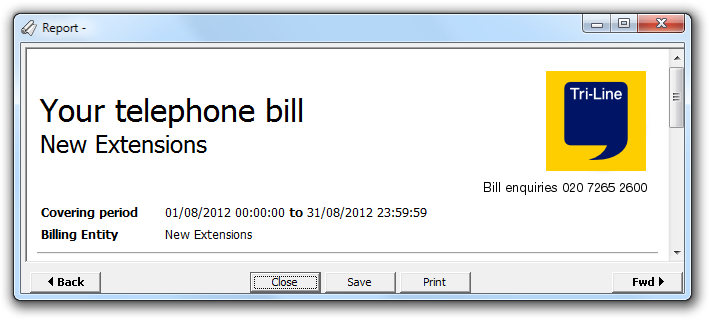Given the system is built around HTML using the HTTP protocol, the user is able to entirely customise the look and feel of all HTML pages and reports.
Each report produced by the system consists of a header, body (containing the information), and a footer. Whilst the body of the report is shaped by the parameters that are passed to it, the header and footer will remain constant and can be edited using any HTML editor.
Each report has an ID number assigned to it, as follows:
| Report name | ID |
|---|---|
| Custom Report | 1 |
| Billing Report | 2 |
| Organisation Drill-Down | 3 |
| Trunks Busy | 4 |
| Call Geography | 5 |
| Top Calls | 6 |
| Incoming Response Analysis | 7 |
| Frequent number | 8 |
| Target response | 90 |
| Extension Usage | 91 |
| Daily activity | 92 |
| Account summary | 93 |
| Full Call Analysis | 94 |
| First and Last Calls | 95 |
| Cost Summary | 97 |
| Inbound Call Performance | 98 |
| Business Centre Summary | 100 |
Using these ID numbers, you can customise the header and footer of any report, by amending the corresponding customheader_x.html and customfooter_x.html files (where x is the ID number of the report), located in data folder of the main installation program.
For example, if you want to add the company name to the heading of each telephone bill you produce, you need to locate the customheader_2.html within the data folder.
An HTML example for such file is shown below:
The example code would produce the following output:

The example above uses server-side includes (SSIs), described in the Dynamic reports section below. |
The system constructs the final report from three different HTML files - header, body and footer. As the final report needs to be rendered in one single file, the open HTML tag must be placed in the header and the closed HTML tag in the footer of the report.